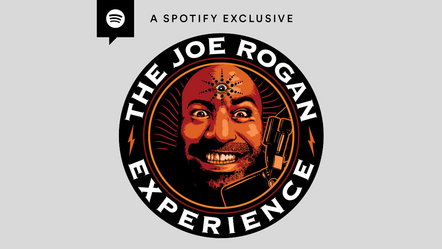New York, NY (Top40 Charts) With its Joe Rogan deal in a white-hot spotlight, Spotify has pulled an additional 70 episodes of the popular podcaster's show from the platform.
The 70 episodes removed Friday were originally recorded between 2009 and 2018 — before the COVID-19 pandemic. A controversy over coronavirus misinformation on Rogan's podcast has boiled over in the last two weeks, spurring
Neil Young and others to demand that their songs get pulled from Spotify.
But controversy attracted by Rogan has not been limited to COVID. Singer
India Arie this week said she was pulling her music and podcasts off Spotify, saying that "I find Joe Rogan problematic for reasons other than COVID interviews… For me it's also his language around race." Arie subsequently posted a video clip on Instagram compiling 24 times Rogan used the N-word on his podcast. "He shouldn't even be uttering the word," Arie said in the post. "Don't even say it, under any context. Don't say it. That's where I stand. I have always stood there."
It's unclear whether Spotify removed all 70 of the episodes Friday because of Rogan's utterance of the racial slur. Reps for Spotify did not immediately respond to a request for more information.
Rogan, in an Instagram post early Saturday, responded to the supercut of him saying the N-word on the podcast. He said it was "the most regretful and shameful thing I've ever had to talk about publicly," although he said he has not used the N-word in years.
"It looks fucking horrible, even to me," Rogan said about the video-clip montage. "I know that to most people, there is no context where a white person is ever allowed to say that word, never mind publicly on a podcast, and I agree with that now," acknowledging that "it's not my word to use." He also said, "I never used it to be racist, because I'm not racist, but whenever you're in a situation where you have to say 'I'm not racist,' you fucked up — and I clearly have fucked up."
Guests on the 70 episodes Spotify just purged included professor and YouTuber Gad Saad, who wrote on Twitter of the show he appeared on, "I believe that in that particular episode (if memory serves me right), Joe had uttered the n-word (I can't remember the context but it was not in a racist manner notwithstanding the likely minefield)."
In a Jan. 31 statement, Rogan had apologized to Spotify over the COVID misinformation backlash and said he would "try to balance things out" in future episodes.
Spotify's mass removal of additional "JRE" episodes was spotted Friday by right-wing author and podcaster Michael Malice (real name Michael Krechmer), who noted in a tweet that the streamer had removed two episodes on which he was a guest. Malice directed followers to a website that tracks Spotify's removals of "Joe Rogan Experience" episodes; Variety confirmed the ones listed are no longer available.
Previously, Spotify had pruned 43 "JRE" episodes from the catalog after the company added Rogan's show in
September 2020 under a $100 million exclusive distribution pact. Those included segments with right-wing figures such as Infowars' Alex Jones, Gavin McInnes and Milo Yiannopoulos and also episodes with various comedians.
The latest batch of "Joe Rogan Experience" eps pulled by Spotify featured guests including podcaster, actor and comedian Marc Maron, LGBTQ activist and author Dan Savage, political commentator Kyle Kulinski, and comedians Bill Burr, Tom Segura, Iliza Shlesinger, Theo Von, Brian Redban, Rich Vos and Pete Holmes.
An independent research poll conducted this week found that 19% of Spotify users claimed they had canceled their accounts or were planning to do so because of Rogan's podcast, but analysts believe the effect of a boycott movement will ultimately be minimal. Spotify is projecting growth for both total users and subscribers for the first quarter of 2022.
Spotify chief
Daniel Ek Spotify, on the company's Q4 earnings call this week, said "it's too early to know what the impact may be" from the Rogan controversy. He added, "But I feel good about where we are in relation to that, and obviously, top-line trends looks very healthy still."
























